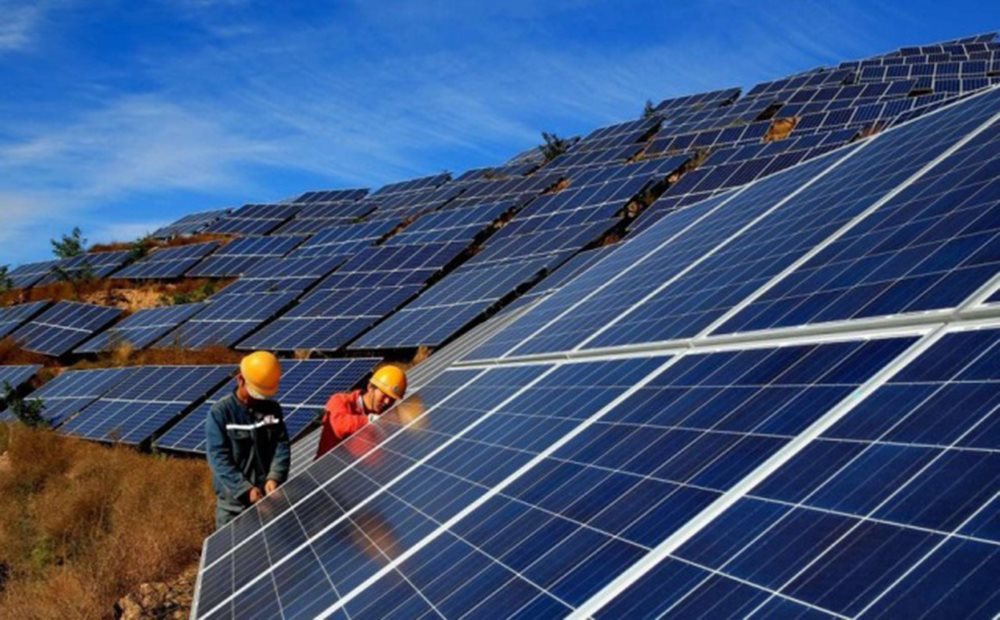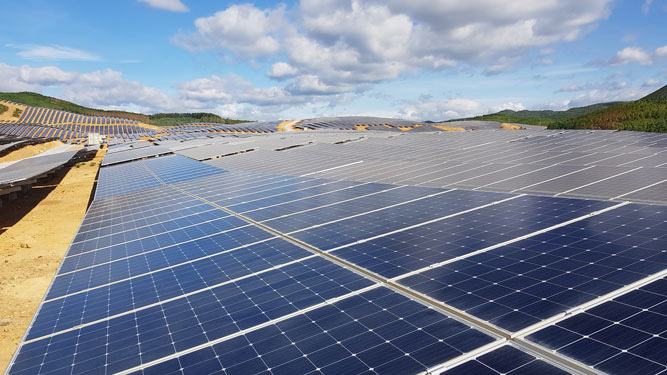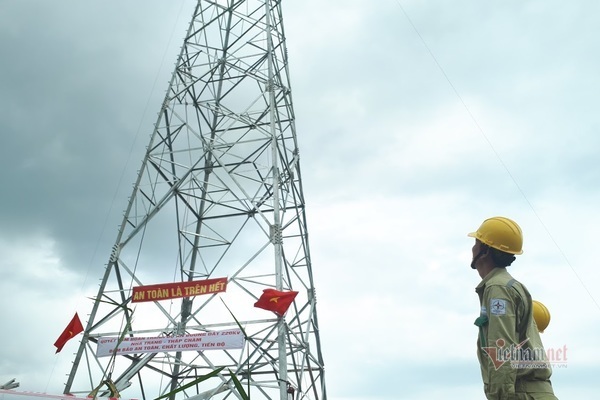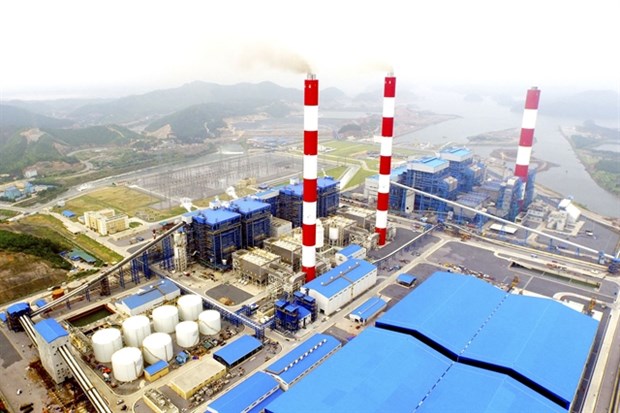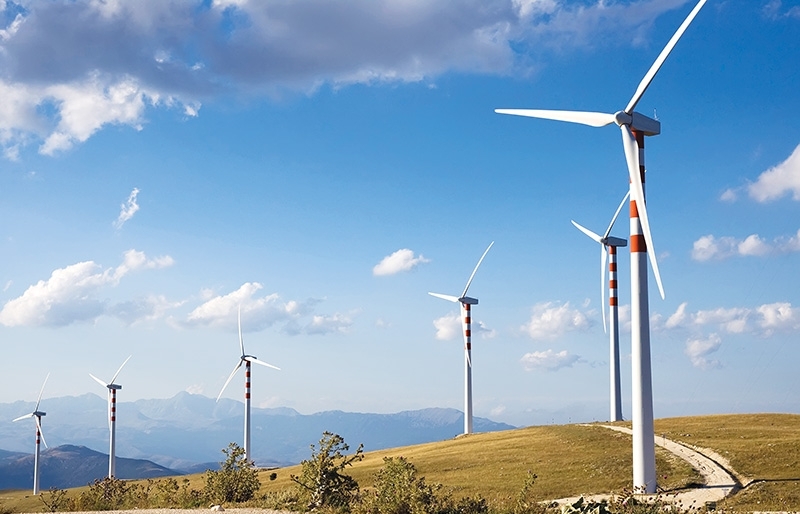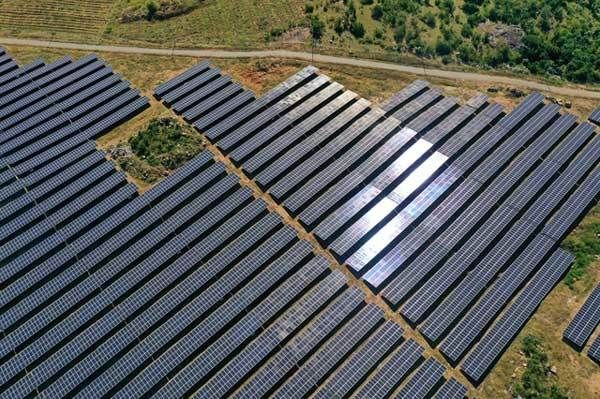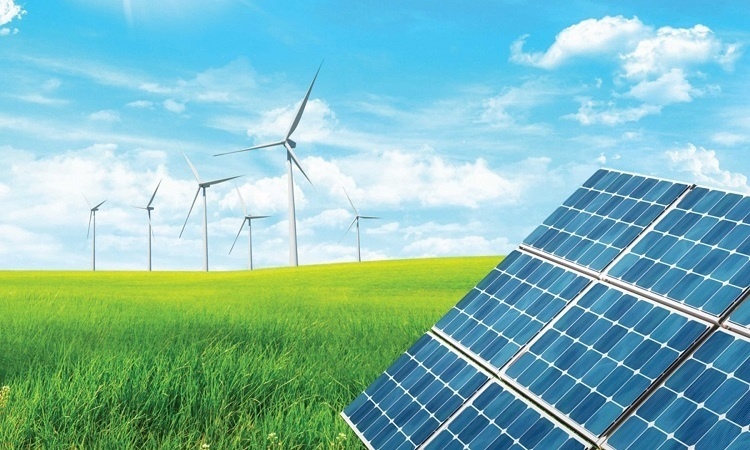- © Copyright of Vietnamnet Global.
- Tel: 024 3772 7988 Fax: (024) 37722734
- Email: [email protected]
solar power
Update news solar power
Investing in power projects, foreigners nurture big ambitions
 Tens of solar power projects have been bought by foreign investors through M&A deals.
Tens of solar power projects have been bought by foreign investors through M&A deals.
VN rooftop solar power to see boom thanks to new decision
 The Prime Minister’s Decision 13 on solar power projects in Vietnam, which took effect on May 22, will give a push to the development of this kind of clean energy.
The Prime Minister’s Decision 13 on solar power projects in Vietnam, which took effect on May 22, will give a push to the development of this kind of clean energy.
FiT revamp vulnerable to speculation
 Despite bankability concerns inherent in power purchase agreements, investing in renewable power is a bright spot in Vietnam as developers rush to take advantage of the current feed-in tariff.
Despite bankability concerns inherent in power purchase agreements, investing in renewable power is a bright spot in Vietnam as developers rush to take advantage of the current feed-in tariff.
Vietnam needs long-term policies on solar power development
 The Decision 13/2020 on the development of solar power in Vietnam was released by the government on April 6, 2020.
The Decision 13/2020 on the development of solar power in Vietnam was released by the government on April 6, 2020.
Vietnam freshens solar sector with FIT
 Vaibhav Saxena, foreign lawyer at Vietnam International Law Firm, discusses how Decision No.13/2020/QD-TTg will impact the Vietnamese solar power market.
Vaibhav Saxena, foreign lawyer at Vietnam International Law Firm, discusses how Decision No.13/2020/QD-TTg will impact the Vietnamese solar power market.
Wind, solar power projects in Vietnam stall during pandemic period
 Instead of rushing to build wind and solar power plants as seen a year ago, investors now have no other choice but to wait.
Instead of rushing to build wind and solar power plants as seen a year ago, investors now have no other choice but to wait.
Can Tho unveils low-carbon transformation project in energy sector
 The Mekong Delta city of Can Tho on April 21 launched a project on promoting low-carbon transformation in the energy sector for the 2020-2030 period and with a vision to 2050.
The Mekong Delta city of Can Tho on April 21 launched a project on promoting low-carbon transformation in the energy sector for the 2020-2030 period and with a vision to 2050.
Solar power to boom after Decision 13
 Decision No.13/2020/QD-TTg on encouraging mechanisms for solar power development in Vietnam sets the deadline of December 31 for solar systems of any scale to attain a certificate of delivery and enjoy the feed-in tariff 2 (FiT2) rate,
Decision No.13/2020/QD-TTg on encouraging mechanisms for solar power development in Vietnam sets the deadline of December 31 for solar systems of any scale to attain a certificate of delivery and enjoy the feed-in tariff 2 (FiT2) rate,
Solar power grows 28-fold in Vietnam's energy mix
 In the first three months, EVN mobilised 2.76 billion kWh of renewable energy, including 2.31 billion kWh of solar power, signifying a 28-fold increase on-year.
In the first three months, EVN mobilised 2.76 billion kWh of renewable energy, including 2.31 billion kWh of solar power, signifying a 28-fold increase on-year.
EVN wants to public list of planned solar power projects in Ninh Thuan
 Electricity of Vietnam (EVN) group has required the Ministry of Industyr and Trade (MoIT) to publish the list of grid-connected solar power projects which were added to the power planning of Ninh Thuan.
Electricity of Vietnam (EVN) group has required the Ministry of Industyr and Trade (MoIT) to publish the list of grid-connected solar power projects which were added to the power planning of Ninh Thuan.
New tariff scheme approved to encourage solar development
 The Government has officially decided to approve a new feed-in-tariff mechanism to encourage development of solar power in Vietnam.
The Government has officially decided to approve a new feed-in-tariff mechanism to encourage development of solar power in Vietnam.
Financiers race to cash in on wind
 While Vietnam’s wind investors are in a race to reap incentives before the November 2021 deadline hits, concerns remain that a boom in solar power projects will lead to a reduction in capacities.
While Vietnam’s wind investors are in a race to reap incentives before the November 2021 deadline hits, concerns remain that a boom in solar power projects will lead to a reduction in capacities.
Investment slows in solar power projects as prices drop
 Investors are no longer rushing to pour money into solar power projects because the new solar power purchase price is considered unattractive.
Investors are no longer rushing to pour money into solar power projects because the new solar power purchase price is considered unattractive.
Vietnam to reduce dependence on coal
Vietnam will reduce the total capacity of coal-fired thermal power plants from 2020 until 2030, according to the National Steering Committee for Electricity Development.
Energy strategy fit for private backers
 Vietnam has enacted its strategic orientations for energy development through to 2030 and with a vision for the next quarter of a century, encouraging more of the private sector to develop for the future, and ensuring energy security.
Vietnam has enacted its strategic orientations for energy development through to 2030 and with a vision for the next quarter of a century, encouraging more of the private sector to develop for the future, and ensuring energy security.
Vietnam encourages private investment in energy: Politburo
 The Politburo will encourage all economic sectors, especially private businesses, to invest in energy projects, Party General Secretary, President Nguyen Phu Trong has said.
The Politburo will encourage all economic sectors, especially private businesses, to invest in energy projects, Party General Secretary, President Nguyen Phu Trong has said.
Green credit takes off in Vietnam
 National green credit programs will help Vietnam reach its goals in the national green development strategy in a comprehensive way and help drive the economy towards sustainable development.
National green credit programs will help Vietnam reach its goals in the national green development strategy in a comprehensive way and help drive the economy towards sustainable development.
Vietnamese Government indecisive about solar power price, investors cautious
 With the new policy on choosing investors through bidding, the hot race of developing solar power projects is expected to cool down.
With the new policy on choosing investors through bidding, the hot race of developing solar power projects is expected to cool down.
Solar power investors ‘ran fast, braked hard’ in 2019
 2019 was a special year for solar power investors: they sprinted in the first half of the year to fulfill projects, but have been idle since July, and are now waiting for a new policy.
2019 was a special year for solar power investors: they sprinted in the first half of the year to fulfill projects, but have been idle since July, and are now waiting for a new policy.
As material prices fall, power companies stand to profit
 The prices of oil and coal have been decreasing, which is expected to improve the profits of power companies.
The prices of oil and coal have been decreasing, which is expected to improve the profits of power companies.



